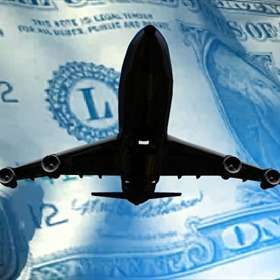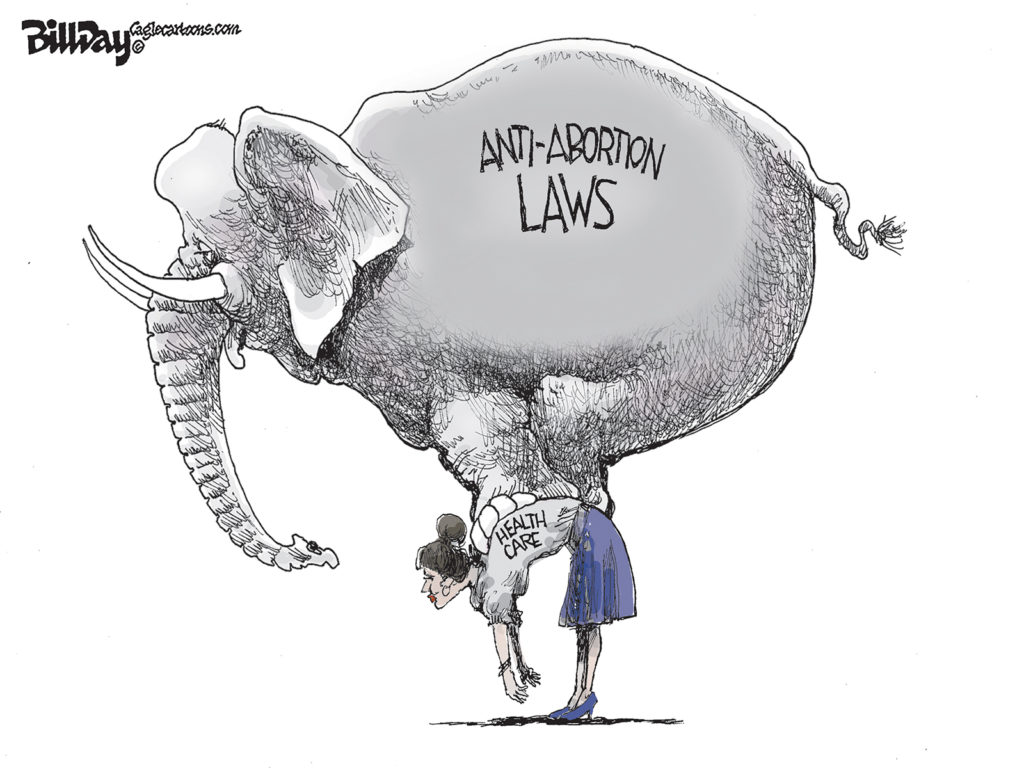Four months ago, we created a new Facebook group called Delta Does Memphis.
Back at the creation of Delta Does Memphis, we envisioned three phases to the campaign: 1) it would give voice to our frustrations and complaints and bring us together to call for change; 2) it would put high airfares and airport reform at the top of our local agenda; and 3) it would inspire a movement that would bring the community together to pursue more airlines and lower ticket prices.
There has been movement on all three fronts, but not enough meaningful involvement of the public in the development of a real plan of action for the future. As is often the case with these kinds of issues, as soon as the immediate crisis is addressed with the usual rhetoric, the usual suspects return to their usual behaviors. Normally, in these situations, there is the semblance of action to quell the criticisms while the overriding strategy is to wear down the other side in hopes that it just goes away.
And yet, in this case, it’s clearly not going to work. This is an issue that will not go away. Delta Does Memphis is making sure of that.
Action Needed
In a presentation about Delta Does Memphis to a local civic group a couple of weeks ago, it was clear to us that the frustration of the public has not ebbed, the demand for action has not slacked, and the anger propelling the need for urgent action has not reduced.
In fact, it’s just the opposite. There is now an imbedded call for reform that is an undercurrent that will not go away. There is a new look at the terms of public boards and their operating procedures. Meanwhile, however, there is still the need for leadership on intolerably high airfares and to resolve issues at the Memphis and Shelby County Airport Authority that enabled the fortress hub that has devastated our economy and weakens our economic comeback.
Now that Delta Does Memphis has ripped the lid off the secret society that has been decision-making at Memphis International Airport (even some of the authority’s members felt like they were not part of it), the public has more information about the causes and the effects of the crisis than they would ever have received otherwise. Delta Does Memphis has inspired a conversation that continues and members of the group have communicated more information, research, and data about the airport and airfares in four months than the official leaders on this issue have done in a decade.
After a burst of concern prompted by Delta Does Memphis as Delta Air Lines whittling away its presence in Memphis, but all the while, gouging us with its outrageously high ticket prices, the airport authority has returned true to form. Transparency is nonexistent. Communications with the public is illusory. Engaging in meaningful discussions with the public is nowhere to be found. There’s still little indication that the airport authority feels our pain, is concerned about Pinnacle leaving Memphis, or is confronting the fact that our airfares – already one of the two most costly in the U.S. – continue to rise by double digits.
Business As Usual at MEM
In other words, it feels like business as usual at MEM. The airport authority appears unable to throw off its closed club image and behavior and its tendency to protect its reputation rather than to protect the public. There’s little point to think the public will get the apology that it deserves for the cozy relationship and the preferential contracts the airport authority signed with Northwest Airlines and Delta Air Lines.
In response to the consultant that reviewed trends in the airline industry, leaders of the Airport Authority and the Greater Memphis Chamber said they already knew all those facts, which begged the question of why then did they not do something to prevent one of the highest two airfares in the country or plan for a transition of our fortress hub to a hub served by multiple airlines.
In truth, the Airport Authority enabled the fortress hub, and as a result, it finds it difficult to admit its mistakes, and because of it, the public’s vote of no confidence in it continues.
The Airport Authority signed contracts that gave Delta Air Lines the keys to the airport, and if they leave, the airline will not pay any penalties to repay Memphis for the costs of the improvements made to the airport on its behalf. These types of penalties are present in contracts signed by other airport authorities.
In addition, the contracts made it difficult for other air carriers to enter the Memphis market, because they in effect would have paid penalties to come here. Several have reported that their airport meetings in previous years also left them with the impression that they were not wanted or valued.
Deer Confusion
Some have said that the authority did all this because it was easier to sign a contract that gave the airport to one carrier than to do the hard work that it would have taken to give Memphis consumers more options and more carriers. Regardless, the authority has looked like a deer in the headlights as this issue reached crisis proportions with more cuts by Delta earlier this year. Last week, Airport Authority and Chamber officials squired around a Southwest Airlines executive who said that his carrier values Memphis and looks forward to being a part of it, but again, it felt more like a public relations exercise aimed at the insiders than aimed communicating with a public who is justifiably jaded at this point by pronouncements about the airport.
Unfortunately, Southwest Airlines enters Memphis a year from now, and it’s only going to do what it was expected to do. With Memphians regularly driving to Little Rock and Nashville to take Southwest flights, it remains unclear if the air carrier will temper its plans here to protect those revenues and then there is the major question about whether it will make a significant investment in Memphis with so many flights at Nashville.
Hopefully, the airport authority and chamber of commerce will forego any bows since Southwest Airlines is doing what was already expected. We’re all for the bows, and we’ll even lead the applause, but only when more than the expected is delivered, and that means more than replacing the present number of AirTran flights with the same number of Southwest Airlines flights.
Modest Proposals
We are regularly asked what can be done, and although our role is more as the sentry to the problem than suggest we have the answer, it does seem time to do the following:
1. Reform the Airport Authority.
The Airport Authority, like every public board, needs more oversight. For decades, it’s operated as if it is an autonomous, private organization rather than a city-county board. The fault does not rest solely with the authority because Memphis and Shelby County governments gave it carte blanche to do whatever it wanted and that extended to the point that its insiders were even deciding who would be appointed as members. In the end, it created a disconnect in which the Airport Authority saw its loyalty to the major carrier than to the taxpayers who owned the airport.
The city and county mayors have made new thinking, new faces, and new diversity on public boards a priority and the Airport Authority needs to be a symbol for that change. Terms for the authority are seven years. That’s longer than either of the mayors and the authority’s length is an aberration when compared to the airport authorities in other cities. Most terms in other cities are for three years or four years. Some cities have also enacted term limits to encourage more public involvement.
It is broader public involvement that can make public boards more effective, more responsive, and more transparent, and these are qualities that have been lacking for decades at the Airport Authority. In response to both city and county mayors attending an airport authority meeting, its chairman excitedly said that it was the first time in 30 years that he could remember both mayors attending a meeting. That in itself is an indictment of the environment that has come to exist at the airport, because it’s hard to imagine why any individual would be on a public board for three decades.
Finally, a number of airport authorities in other cities have their mayors as members to ensure that the link between the board and the government that created it remains strong.
Reform of the Airport Authority – and it could become a model for all public boards – begins with the passage of more reasonable terms of office, enactment of term limits, and stronger oversight by finding a way to appoint the mayor as a member.
Another means of oversight, as we have previously written, is for the Airport Authority to become part of the EDGE process and for its work to be integrated, vetted, and planned into its work. Our city and county don’t have the luxury of wasted effort, and we need for all economic development strategies to be part of the same overall plan and for all economic development functions to operate by the same guiding principles.
2. Begin a national search for a new president of the Airport Authority.
The long-time president of the Airport Authority will retire in less than two years, and the national search for his replacement must begin now. Many of the qualifications for that position should be typical for similar positions, but here, we need to target candidates who have successfully led an airport through a transition from a dominant carrier to multiple carriers.
We need this specialized knowledge if we are to navigate these difficult times successfully and with the best possible captain at the helm.
3. Develop a plan of action that reflects a sense of urgency.
It’s time for the public to be engaged in the conversation about the development of a plan and about how they can help execute it. There are consultants who have led cities through periods of crisis and transition at airports around the country, particularly with the leadership of business leaders.
The process to find answers must be entrepreneurial at its core. It can’t be business as usual, and because of it, it needs a small, nimble, creative group of leaders (and we define leaders as people who can pick up a phone and dial the president of the airlines, not a vice-president nor the head of planning).
4. Economic development agency leadership that helps the public get involved.
There’s a tendency for economic development agencies to give lip service to the public while doing little to offer them opportunities to become part of the solution. Giving the public the opportunity to join in and send a message to airlines that they should give Memphis serious consideration for new flights was the reason that Come Fly Memphis was created. What is most needed now is serious support from local economic development agencies that are either public or funded by the public.





It should also be noted that more than a year ago the airport authority under the guides of remodeling the B terminal removed all the Dr. King and civil rights photos. AFSCME objected to this to the airport authority and both the City and County Mayors we were told that the display of photos would be put back up in a prominent place, to this day the civil rights historic photos have not been displayed – the airport does proudly display many remembrances to Elvis Presley.